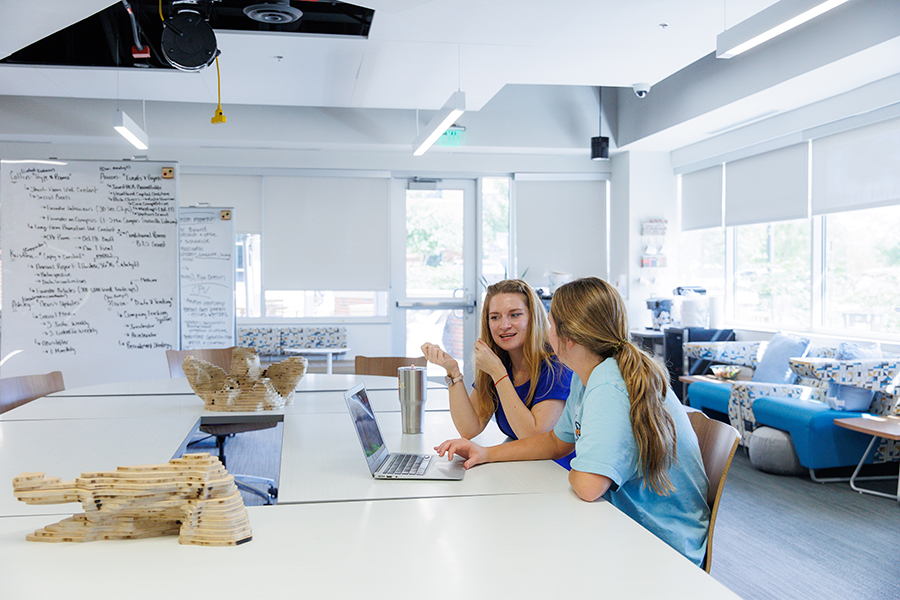Transforming the Arts: Frances Pollock and the Yale Law School Entrepreneurship & Innovation Clinic
Frances Pollock is not your typical composer. While her training lies in music, her practice has evolved into the realm of business, where she is making waves as an innovator in the arts. Pollock’s journey has been significantly shaped by her collaboration with the Yale Law School’s Entrepreneurship & Innovation Clinic, where she has gained insights that have transformed her understanding of both art and commerce.
A Composer’s Journey into Business
Pollock arrived at Yale with a passion for music but little knowledge of the business world. Her interest in the ownership and monetization of artistic work sparked a desire to learn more about the intersection of art and entrepreneurship. “I always joke that I feel like I’ve been to law school because I feel very confident now in being able to read a contract,” she remarked, highlighting the profound impact of her exposure to legal concepts through the clinic.
The Entrepreneurship & Innovation Clinic, which has served around 75 clients since its inception in 2018, provides legal counsel to entrepreneurs navigating the complexities of establishing and growing their businesses. The clinic has helped its clients collectively raise over $50 million, focusing on ventures that not only promise innovation but also aim to make a positive societal impact.
The Role of the Clinic
Led by Clinical Associate Professor of Law Sven Riethmueller, the clinic emphasizes that transactional law is more than just paperwork; it’s about being a good counselor. “The thing that makes a good lawyer on the transactional side is to be a good counselor,” Riethmueller explained. This philosophy underpins the clinic’s approach, where students learn to prioritize the educational experience of their clients while providing high-quality legal advice.
Clients are encouraged to embrace a slower pace that allows students to learn, resulting in a level of attention and service that is often unmatched in traditional law firms. This unique model fosters a collaborative environment where both students and entrepreneurs can thrive.
Pollock’s Ventures: MOC Spark and MOC Innovations
Pollock’s entrepreneurial journey took a significant leap forward with the establishment of MOC Spark, the first artist-run venture capital fund. This innovative model allows artists to retain ownership of their work while attracting investment. By pooling funds from investors, MOC Spark finances artistic projects in exchange for a 20% equity stake, leaving creators with 80% ownership. This model mirrors funding pipelines in the tech industry, offering a fresh approach to financing the arts.
Building on this success, Pollock co-founded MOC Innovations, a venture studio designed to revolutionize how theatrical productions and films are developed and launched. This initiative not only addresses the financial challenges artists face but also ensures they benefit from their intellectual property in a manner akin to tech entrepreneurs.
A Case Study: “The Bridge”
One of the most exciting projects emerging from Pollock’s collaboration with the clinic is “The Bridge,” a musical inspired by the true story of the woman who secretly engineered the Brooklyn Bridge. The performance, which showcased Pollock’s score, marked a significant milestone in her graduate work and highlighted the innovative business model she is championing. The clinic’s involvement was acknowledged during the performance, underscoring the collaborative spirit that defines Pollock’s journey.
Student Perspectives: Learning Through Collaboration
The clinic not only benefits entrepreneurs like Pollock but also provides invaluable learning experiences for law students. Emma Li, a student at the clinic, expressed her motivation to help artists retain more of their profits, noting the stark reality that producers often claim a significant portion of Broadway profits. “Without this work, artists like Frances and her partners would get so little from such an amazing piece of work that they’re working so hard to put together,” she said.
Real-World Applications: TranscribeGlass and VeruStruct
The clinic’s impact extends beyond the arts. For instance, Madhav Lavakare, a Yale undergraduate, developed TranscribeGlass, smart glasses that transcribe conversations for the hard of hearing. The clinic guided him through the complexities of setting up a corporation, drafting terms of service, and navigating intellectual property issues. “We’d have been lost navigating these issues without the help of the EIC,” Lavakare admitted.
Similarly, Nicholas Callegari, founder of VeruStruct, is working to revolutionize affordable housing construction through sustainable 3D printing technology. The clinic assisted him in drafting foundational documents and strategizing business matters, helping him refine his vision and mission. “Their guidance and mentorship have helped me grow into a founder that is comfortable navigating startup legal frameworks,” Callegari noted.
Practical Skills for Future Lawyers
The clinic offers students practical skills that are often overlooked in traditional law school curricula. Students engage in intellectual property transactions, draft licensing agreements, and learn the nuances of corporate law without the pressures of a typical law firm environment. This hands-on experience equips them with the confidence and competence to navigate the complexities of legal frameworks in the startup world.
Kaitlin Willardson, a clinic student, emphasized the collaborative nature of corporate law, stating, “Unlike litigation, there isn’t an adversary. Instead, you, your client, and your investors are working together towards a common goal.” This perspective fosters a positive working relationship that can lead to successful outcomes for all parties involved.
Conclusion: A New Era for the Arts
Frances Pollock’s journey exemplifies the transformative power of collaboration between the arts and legal education. Through her work with the Yale Law School Entrepreneurship & Innovation Clinic, she is not only redefining how artists can monetize their work but also inspiring a new generation of law students to think creatively about the intersection of law and entrepreneurship. As the clinic continues to support innovative ventures, it is clear that the future of both the arts and business is bright, driven by collaboration, creativity, and a commitment to positive societal impact.

:max_bytes(150000):strip_icc()/ENTREPRENEUR-final-5f937601d416459bb7c9d28fe5052b42.png?ssl=1)
















